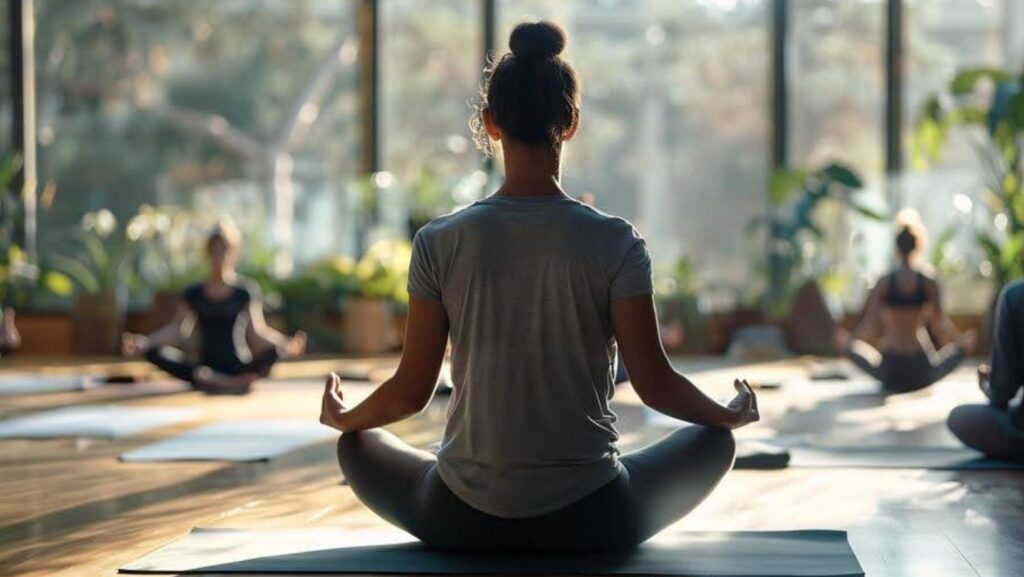Most people think they know what being healthy means. Join a gym, buy organic spinach, install Headspace on your phone. But plenty of people tick all these boxes and still don’t feel good or even healthy.
There’s usually a few reasons why.
Wellbeing is messier than Instagram makes it look. The World Health Organization talks about complete physical, mental and social wellbeing, which sounds fancy but basically means your whole life needs to work together. When one part falls apart, everything else gets wobbly too.
Three things matter the most: taking care of your physical health, staying mentally balanced, and making time for things you actually enjoy. Miss any of these and you’ll feel it, even if you’re ticking all the other boxes.
Your Body Keeps Score of Everything
Your body affects everything you do during the day. When you feel physically decent, your brain works properly, you sleep well, and your colleagues seem less annoying than usual. Doctors say adults should exercise 150 to 300 minutes per week and do some strength training twice weekly. Sounds impossible until you realize that’s just 20 minutes of walking daily plus a few push-ups during commercial breaks on television. You could walk to the shops instead of driving, take the stairs at work, or do squats while your coffee brews. The strength training could be push-ups against your kitchen counter or lifting grocery bags with proper form.
Sleep is where most people mess up. A perfect diet and religious gym attendance won’t save you if you’re getting five hours of sleep because you can’t stop watching videos at midnight. You’ll feel awful. People who sleep properly make better decisions, catch fewer colds, and complain less about everything.
The point isn’t becoming some fitness model. It’s having enough energy to do what you want without feeling like death. Someone who walks regularly and sleeps eight hours will probably feel better than someone who does CrossFit six times a week but survives on energy drinks and three hours of sleep.
Fun Time Actually Matters for Your Health
People dismiss free time as selfish, especially those who think being busy makes them important. Research shows enjoying yourself reduces stress, improves creativity, and makes you better company. Some psychologist with an unpronounceable name studied people who get lost in activities they love. Could be painting, gaming, fixing cars, whatever. These focused moments create satisfaction that bleeds into other parts of life.
Everyone unwinds differently. Some people garden, others read books, and plenty of people prefer digital entertainment. For example, many players have started using BTC gambling in Australia platforms that offer faster payouts and more privacy than traditional casinos.
What you do matters less than whether it actually helps you relax. Scrolling social media while worrying about work emails isn’t leisure. Neither is forcing yourself to do hobbies that feel like chores because someone told you they’re “good for you.”
Real downtime gives your brain a break from constant problem-solving. Without it, even people with perfect diets and exercise routines burn out and start going through the motions instead of actually living.
Mental Health Goes Beyond Crisis Management
Mental health gets talked about more lately, but most people think it’s just about avoiding meltdowns. The real stuff is everyday stress and whether you have people in your life who don’t make you want to hide under a rock. Harvard researchers followed thousands of people for 80 years and discovered that good relationships beat money, fame, and even physical health for making people happy.
This isn’t about being social media popular or having hundreds of acquaintances. Quality beats quantity every time. A few people who actually care about you will do more for your mental health than a thousand Instagram followers.
Stress management is the other piece. Everyone faces stress and pretending otherwise helps nobody. Some people meditate, others see therapists, plenty just complain to friends over coffee. The specific method you choose matters less than having some way to deal with everyday stress before it completely overwhelms you. Mental strength also means knowing when you’re in over your head and getting professional help instead of trying to tough it out alone like a hero.
Everything Connects Whether You Want It To or Not
Wellbeing doesn’t work in separate boxes or neat categories. Physical activity improves sleep quality and reduces anxiety levels significantly. Good friends encourage you to try new activities and maintain healthy habits over time. Taking proper breaks from work makes stress more manageable during busy periods.

This creates a positive feedback loop where improvements in one area boost the others without extra effort. But it works in reverse too. Poor sleep makes you irritable, which strains relationships, which makes you want to isolate, which makes everything worse.
The good news is you can break into this cycle anywhere. Start exercising and your mood often improves. Prioritize friendships and you’ll probably try new things. Make time for actual fun and work problems seem less overwhelming.
Nobody Changes Everything Overnight
Most people follow the same pattern. Sunday night hits, you feel terrible about your current state, and decide everything changes starting Monday. You’ll exercise daily, eat perfectly, sleep eight hours, and become a meditation guru.
And this never works. Your brain fights dramatic changes because they feel dangerous and unsustainable. By midweek you’re exhausted from trying to be someone else.
So start with changes so small they seem pointless. Walk to your mailbox, or do five push-ups. Text one friend. Things that take less effort than making coffee don’t trigger resistance because they barely register as changes. After a few weeks, they become part of your routine without any willpower required. Then you can add another microscopic habit.
Real transformation happens through accumulated small actions, not weekend warrior attempts. Six months of consistent tiny changes beats any dramatic two-week overhaul that ends in frustration and giving up.
